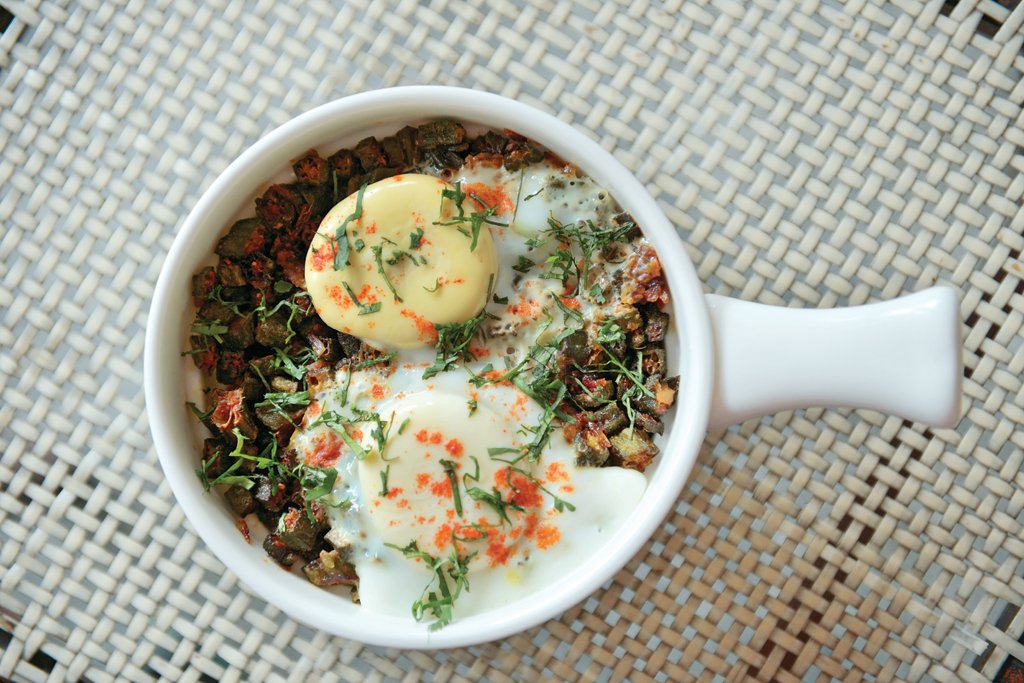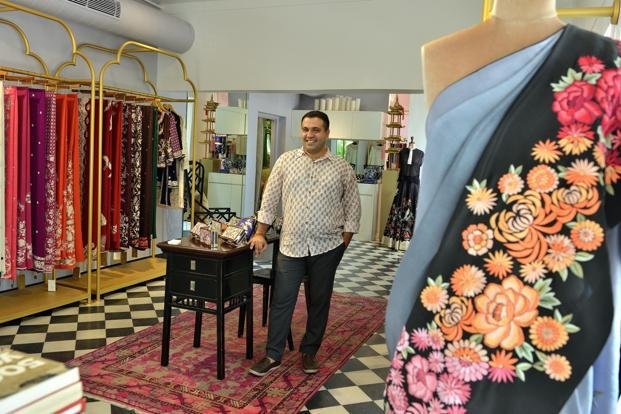Big Bawa Breakfast: Feast Like The Parsi Do
A writer recalls her father as a man who believed in a hearty start to the day with traditional Parsi delicacies
“Is someone sick?” my father often grumped at the breakfast table when we were children. “Otherwise, why’re we eating invalid food?” This remark about pareji bhonu was half in jest, half in horror. On a good day my mother merely rolled her eyes and continued to serve a low-on-oil, low-on-fuss breakfast. On a bad day she muttered darkly about cholesterol and heart attacks.
My mother is a sensible Bohra who believes in moderation. My father was a Parsi who emphatically did not. Which was why he felt such nostalgia for that most immoderate of meals—the Parsi breakfast. He grew up as part of a boisterous joint family in a rambling house on the outskirts of Hyderabad. “We ate kheema everyday. And aleti paleti,” he maintained. “We ate plain eggs only if we were sick. Very sick. Otherwise we had to have bheja cutlets and gurda-kaleji and akoori and…” With every retelling, those childhood breakfasts became more sumptuous and artery-choking.
Still, my brother and I were wistful. We quite fancied a frilly brain cutlet to bolster us for a day of biology and Marathi. Or redolent kheema topped with chopped onion and a twist of lime. Or kheema ghotala, that spicy, springy dish packed with textures and flavour that emerges when kheema is scrambled with egg and masalas. My mother, though, invariably shuddered. She’s a two-toast, one-cup-of-tea person. Certainly not someone who would step into the kitchen at dawn, pop on an apron and start chopping chicken heart, liver and gizzard before frying them with ginger-garlic paste so that she could serve her husband aleti paleti. Or put together a mishmash of goat kidney, liver and lungs enlivened with a slug of toddy, just so that her children could get their fix of gurda-kaleji and a head start on gout.

Naturally then, we grew up eating toast, butter, strawberry jam and the occasional scrambled egg or omelette. We did encounter a pale version of the Parsi breakfast during trips to Hyderabad, where welcoming relatives laid out homemade pumpkin and mango murambos, sweet ravo and elaborate egg dishes. Or during hill-station holidays at old-fashioned Parsi hotels. Or at Irani restaurants like Kyani’s, where we usually ordered kheema pav and omelette—and then wondered if we should have tried a mutton bhurji instead.
After all, Parsis are truly experimental when it comes to eggs. They’re convinced that all you need to do to improve a dish is to throw in an egg. Or a dozen. This is the philosophy behind creations like sekta ni singh na phool par eeda (eggs slow-cooked on drumstick flowers) or khari biscot par eeda (eggs slow-cooked on flaky biscuits) or leeli keri ne vengna ni akoori (akoori with raw mango and brinjal). The basic Parsi akoori is egg scrambled with onion, green chillies, tomato, garlic and kothmir (coriander), but it has an eggier flavour and creamier texture than regular bhurji. If that sounds pedestrian, wait till you sample the innovations.
Bharoochi akoori is made with golden slices of fried potato and terrifying quantities of ghee (600 grams for eight eggs). Mava ni akoori uses nuts and raisins. Other versions use dried Bombay duck, chunks of mutton, ripe mango and any other leftover sitting around in the refrigerator.
Similarly, the Parsi poro in its simplest form is an unexciting omelette. But when it acquires extravagant stuffings—prawns, chopped brain or de-boned Bombay duck—it proves its provenance. As does the bhindi par eedu, kera par eedu and tamater par eedu. Here the bhindi, banana or tomato is blanketed with egg and cooked on a low heat. (A lot of Parsis claim this is the only way they can digest their vegetables.)

I’d encountered these dishes over the years, but I finally understood my father’s obsession with breakfast during a work trip to Daman. My husband and I drove down and decided to spend the night at Oliaji’s, one of those beloved Parsi institutions. We set out early and I spent the day chasing my story in that palm-fringed coastal town. It was late when we reached the hotel, a cluster of too-simple cottages arranged around a dark courtyard. There was a power cut and a scurrying, mouse-like sound kept me awake all night. Why on earth had my father suggested that we stay here?
A few hours later, the mystery was solved. Breakfast started slow. Tea and rotlis were plonked down on the table on the verandah outside our room. “Can we get fried eggs?” my husband asked, eyeing the spartan offerings. The waiter gave him an odd look and trotted away. He returned a minute later with a tray sagging under the weight of akoori, kheema, bheja cutlets, fried fish and ravo. “We’ll never be able to eat all this,” I gasped, as the waiter reappeared with a last and final bowl. “Gurda-kaleji,” he announced pointedly. “Do you still want fried eggs?” We actually whimpered.
That breakfast at Oliaji’s remained unmatched for a long time. Till, years later, I needed to visit another coastal town for another story. My parents decided to come along with us. Purportedly so that my father could visit the holiest of holy Atash Behrams in lovely Udvada. In reality so that he could have a merry, uric-acid-laced weekend.
We booked a room at Majestic Hotel, which was then being managed by Neville Godiwala (of Godiwala Caterers fame). About 10 days before our trip, my father launched his attack. He called the hotel daily, sometimes twice a day. “What do you serve for breakfast?” he would demand. “And lunch and dinner?”
Not satisfied with the vague responses, he summoned Neville Godiwala to the phone. “That’s all?” we heard him quibble. “No aleti paleti? No gurda? No boi machhi?” When we eventually arrived at the hotel, Neville Godiwala hurried out to greet my father. With a haunted look, he promised, “I will personally see to your breakfast tomorrow.”
The next day began with doodh na puff—milk kept overnight in the garden and then whipped till deliciously frothy. Then came a parade of clunky bowls heaped with flavour-packed akoori, kheema, gurda-kaleji and cutlets. Then a platter of crisp-fried boi machhi and sweet, creamy ravo. After which a man on a bicycle toodled along and persuaded us to try his kulfi. My father was gleeful. The rest of us staggered around in a meat-and-ghee-induced daze.
We always planned to return to Udvada for breakfast. But Neville Godiwala passed away a few months later. Majestic Hotel shut down. And about a year ago, my father passed away.
It seems somewhat ironic then that the Parsi breakfast has suddenly become what the Americans call ‘a thing’. The subject of pop-ups, blogs and special menus. But every time I read the dishes on offer, I find myself shaking my head and echoing my father’s words. “What? No aleti paleti? No gurda-kaleji? No boi machhi?” When it comes to the Parsi breakfast, the half-bawi in me can’t bear half measures.





